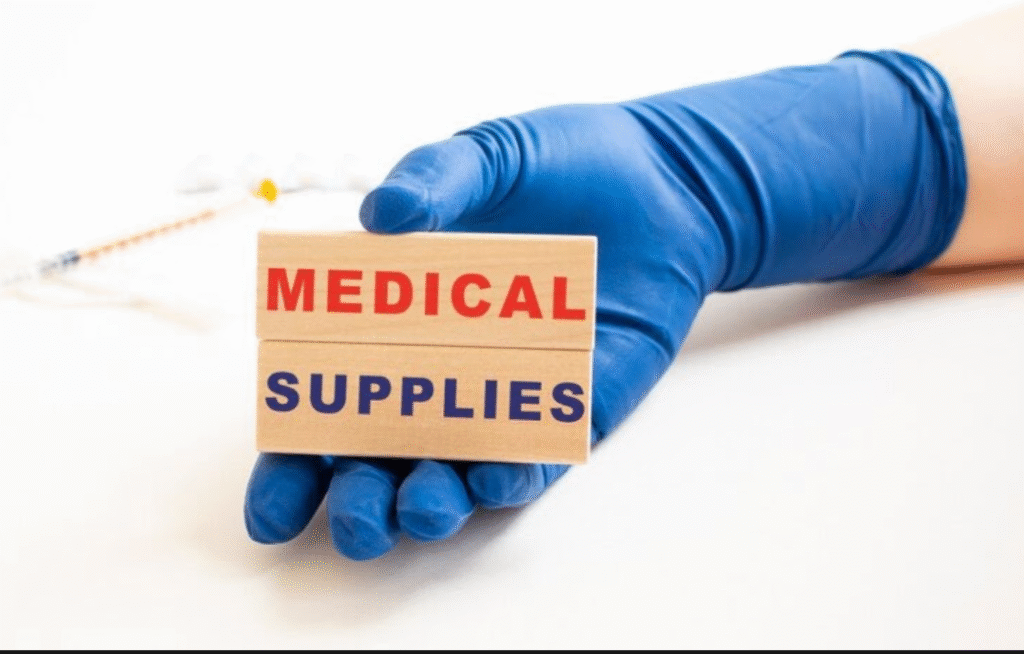
In healthcare, the quality and reliability of medical equipment can significantly impact patient outcomes, staff efficiency, and overall facility operations. Whether you’re running a hospital, clinic, or long-term care facility, selecting a trustworthy medical equipment supplier is crucial. The right suppliers ensure that your healthcare facility has the tools to deliver high-quality care and maintain safety standards.
Several factors must be considered when choosing the best suppliers. Here are some valuable tips to help healthcare facilities select reliable medical equipment suppliers that meet their needs.
7 Tips for Healthcare Facilities: Choosing Reliable Medical Equipment Suppliers
1. Assess the Supplier’s Reputation
A medical equipment supplier’s reputation can speak volumes about their reliability. Start by reviewing the company’s history and track record in the industry. Look for customer testimonials, reviews, and any certifications they may have. A good reputation often indicates a trustworthy supplier, provides quality products, and has a history of delivering on time. You can also ask for recommendations from other healthcare professionals or facilities to ensure that the supplier you’re considering is respected within the industry.
2. Evaluate Product Quality and Compliance
Quality is paramount when it comes to medical equipment. Before selecting a supplier, ensure that their products meet the required quality, safety, and compliance standards. Look for certifications such as FDA approvals, CE marks, or other regulatory certifications that show the equipment meets safety standards. In some cases, suppliers may even offer guarantees or warranties, providing an added layer of protection for your investment.
For healthcare facilities, it’s important to choose suppliers who are committed to providing the highest quality products, as these directly affect patient safety and clinical outcomes.
3. Check for After-Sales Support and Service
Medical equipment isn’t just about the initial purchase; it’s also about ongoing maintenance and support. A reliable supplier should offer comprehensive after-sales support, including warranty services, repairs, and technical assistance. Some suppliers may also offer training for your healthcare staff on properly operating the equipment. This ensures that your team can use the equipment safely and efficiently, reducing the risk of operational errors.
Suppose the supplier offers easy access to support channels, such as phone, email, or even on-site visits. In that case, it’s a good sign that they’re committed to maintaining a long-term relationship with your facility.
4. Consider Supplier Flexibility and Availability
Healthcare facilities are dynamic environments, and needs can change rapidly. A good supplier should be able to adapt to those changing needs and be flexible enough to supply equipment in a timely manner, even during periods of high demand. If your facility experiences an urgent need for a specific type of equipment, a responsive supplier can make a significant difference.
Moreover, ensure that the supplier has reliable stock management systems to avoid delays in delivering essential medical equipment. Delays in receiving necessary equipment can have serious consequences in a healthcare setting.
5. Understand Pricing and Contract Terms
While medical equipment is an investment, it’s essential to ensure you get value for money. Look beyond the initial cost of the equipment and consider any hidden costs, such as delivery fees, installation charges, or long-term maintenance costs. Reliable suppliers should be transparent about their pricing and provide clear terms regarding payment and warranties.
It’s also a good idea to negotiate long-term contracts for bulk orders, as this may help secure better pricing or offer flexibility in terms of payment schedules.
6. Ensure a Wide Product Range and Customization
Every healthcare facility has unique needs based on size, specialties, and patient population. The right supplier should offer a wide range of products catering to your facility’s specific needs. Whether it’s hospital beds, diagnostic equipment, or patient monitoring systems, the supplier should have a diverse product catalogue to ensure you can source everything you need from one place.
Furthermore, some healthcare facilities may need customized equipment or specific features. Finding a supplier that can provide tailored solutions to meet those particular requirements is essential.
7. Evaluate Delivery and Logistics Capabilities
Timely delivery of medical equipment is critical, especially in emergencies or when setting up new facilities. Choose a supplier with a proven track record of on-time deliveries and strong logistics capabilities. The supplier must guarantee the timely arrival of your equipment, especially for items essential for patient care.
Many suppliers offer online tracking for orders, which helps ensure that your equipment arrives on schedule. Be sure to confirm the delivery times and conditions before making a purchase.
What’s Next?
Selecting the right medical equipment supplier is essential for healthcare facilities aiming to provide the best care to their patients. By carefully considering suppliers’ reputation, product quality, after-sales support, and flexibility, healthcare providers can make informed decisions that support their long-term goals.
Keeping these tips in mind will help you find a supplier that meets the unique needs of your healthcare facility and helps deliver quality care with the right equipment.



